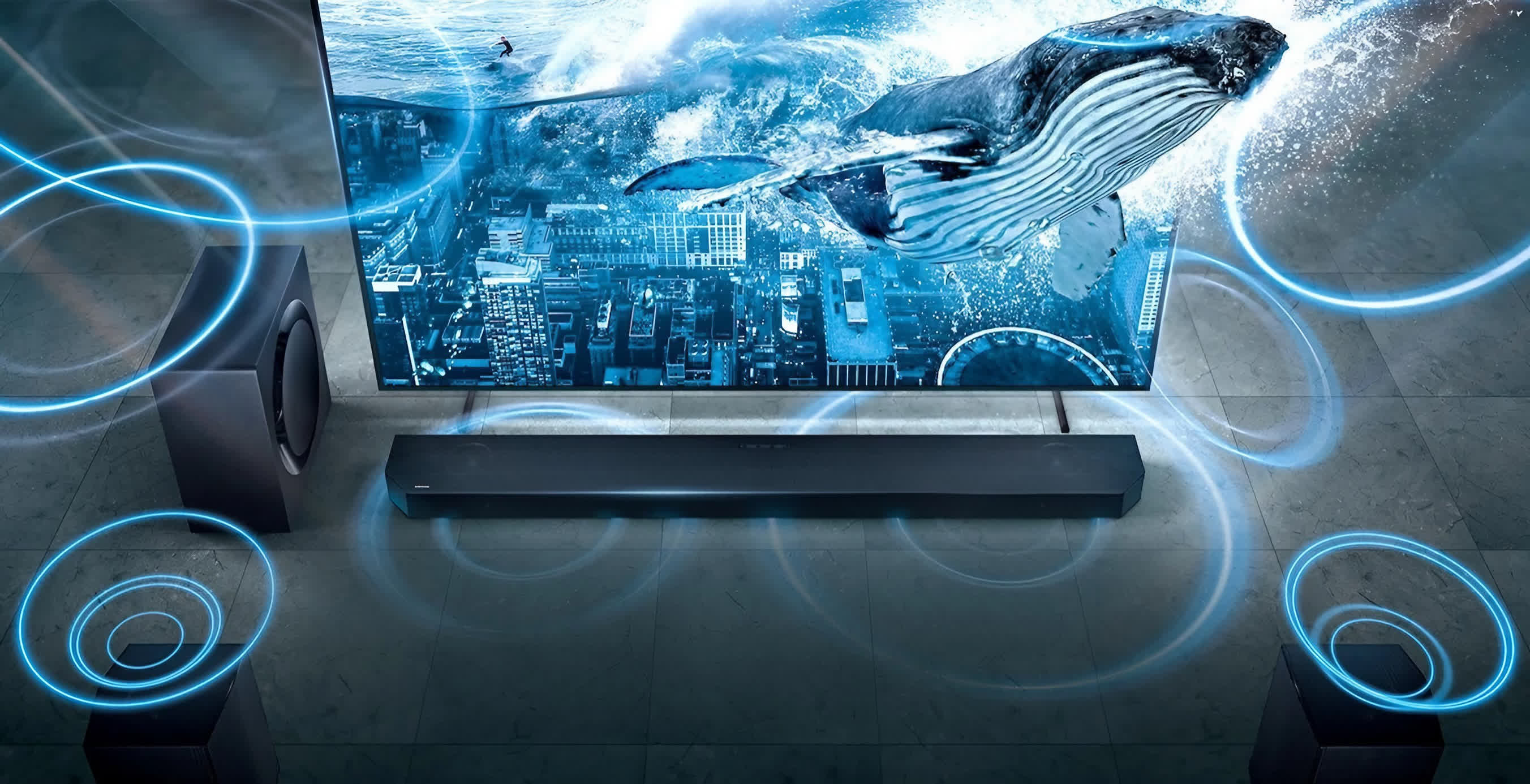Forward-looking: Samsung and Google have teamed up to challenge one of the biggest names in immersive audio – Dolby. The two companies have announced Eclipsa Audio, a new open-source spatial audio format designed to bring 3D sound to YouTube and Samsung's latest TVs and soundbars later this year.

For years, Dolby Atmos has been the dominant force in 3D audio, known for its immersive surround sound that makes it feel as though sounds are coming from all around you. It's become a household name, with nearly every major TV manufacturer today paying the "Dolby tax" to license Atmos for their premium sets and speaker systems.
However, Samsung and Google are looking to disrupt the status quo with Eclipsa Audio, a royalty-free alternative. Samsung claims that Eclipsa Audio functions similarly to Atmos by adjusting audio data – such as location, intensity, and spatial reflections – to create 3D sound. The key difference is that it's an open standard, meaning hardware makers won't have to pay licensing fees.
In addition, the two companies are establishing a certification program with the Telecommunications Technology Association to ensure consistent quality across devices using the technology.

Samsung and Google first teased their spatial audio collaboration in 2023 under the name Immersive Audio Model and Formats (IAMF). At the time, Samsung described the initiative as aiming to provide "a complete open-source framework for 3D audio, from creation to delivery and playback."
So why are the two companies putting in all this effort? For Samsung, the primary motivation likely revolves around avoiding licensing costs. With TV profit margins tighter than ever, cutting expenses wherever possible is crucial. Google's motivations are less clear, but it seems the company wants to give YouTube creators a platform to experiment with immersive 3D audio experiences.
"We believe that Eclipsa Audio has the potential to change the way we experience sound," said Jim Bankoski, VP of Engineering at Google Chrome. "We are excited to see how the creator community uses it to create new and innovative audio experiences."
The big question, of course, is whether Samsung and Google's new venture can truly rival Dolby's well-established technology. Dolby has had years to refine Atmos, which has become the industry standard recognized by casual viewers.
Whatever the outcome, we'll get our first real glimpse of how Eclipsa stacks up at CES 2025 next week, where Samsung is expected to provide live demonstrations.
Samsung and Google take on Dolby Atmos with a new royalty-free audio format